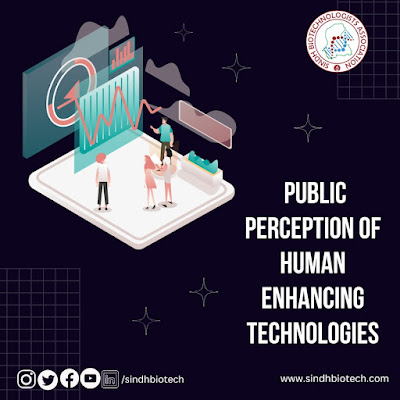Medical Biotechnology
INTRODUCTION AND BASICS OF MEDICAL
BIOTECHNOLOGY
We all are familiar about both words “medical “which means relating to illness
and injuries and to their treatment or prevention. And “biotechnology” means the use of biological processes for industrial and other uses, particularly the genetic modification of microbes for the manufacture of antibiotics, hormones, and other pharmaceuticals. Both words will combine and made a diverse fantastic branch of biotechnology.
Medical biotechnology is not only a single branch it is basically the whole spectrum of human medicine. In this, Preventive medicine, Diagnosis of health and illness, Treatment of human diseases etc. etc. all are included (Viyas, 2017).
Due to huge decreases in infant mortality, elimination of life-threatening illnesses like smallpox, and significant increases in life expectancy in developing and industrialized nations, the twentieth century has seen the greatest gains in health in most areas of the world. Most people's
lives used to be rough, with inadequate nourishment, substandard housing, and, most importantly, short lifespans. Many people's health has improved dramatically as a result of improved sanitation and living circumstances, as well as the availability of vaccines and medicines. The most prosperous economies appear to be in the best shape.
Access to clean water is a critical element in life expectancy! Drinking water is a high-risk exposure in much of the poor world. Without
a doubt, rather than medical interventions, the actual advances in health during the previous century can be traced mostly to the influence of public health and illness prevention. The primary distinction between public health and clinical medicine is that the former emphasizes illness prevention rather than cure, while the latter places a greater emphasis on populations and communities rather than individual patients. Continue to build a public health strategy that protects populations and develops preventative methods for groups and individuals.
Biotechnology has played an important role in developing initiatives to achieve clean drinking water and waste treatment technologies, and it continues to do so. In today's industrialized nations, infectious illnesses are no longer the primary cause of death; instead, chronic diseases afflict our ageing population. Much of the enhanced life span obtained in the previous 50 years has been spent extending dotage rather than prolonging youth (Ahmed, 2018).
Introduction:-
In recent years, the area of medical biotechnology has seen significant expansion, resulting in the creation of a number of novel approaches for preventing, detecting, and treating illnesses. Novel methodologies, such as polymerase chain reaction, gene sequencing, fluorescence in situ hybridization, microarrays, cell culture, gene silencing using interference RNA, and genome editing, have made significant contributions to improving health science, such as human genome sequencing, stem cell use for regenerative medicine, tissue engineering, antibiotic development, and genome editing (Varsha Gupta, 2016).
Basics of Medical biotechnology:-
What is Medical Biotechnology?
Medical biotechnology is a drug development area that analyses and produces pharmaceutical and diagnostic products using living cells and cell components. These aid in the treatment and prevention of illnesses. From the Ebola vaccine to human DNA mapping to agricultural impacts, medical biotechnology is advancing rapidly and benefiting a large number of people. Work in genetic testing, pharmacological therapies, and artificial tissue development are some of the newest applications of biological technology. There are new problems that have arisen as a result of the numerous developments in medical biotechnology. When it comes to this fast-paced business, there are numerous things to identify and control, from finances to ethics. We learn about the various technological advances in biology, as well as the issues that come with them, with the help of this.
Major biotechnology breakthroughs in medicine from cancer research to agricultural improvements, medical biotechnology offers a plethora of exciting technical advancements that have the potential to benefit a large number of people.
Medical and ethical problems of biotechnology.
While medical biotechnology has made progress and has benefits, anything this fast-growing and strong is certain to cause some worries and issues. Medical biotechnology is a contentious medical topic that is fraught with ethical issues (E, 2004 Dec).
• Risk to human life in clinical trials
• High price might exclude the poor
• There are privacy concerns.
• Some teams oppose stem cell analysis
• Bioterrorism is a national concern.
Medical biotechnology is a rapidly growing sector that, in addition to its potential for saving lives, raises significant ethical concerns. As the area develops, people from many industries will be required to make choices that will aid in the regulation of the subject. Medical biotechnology will soon become a significant pillar of health research if present development rates continue (Biotechnology in medicine, 2017).
Conclusion:-
At last but not the least, traditional drugs are enhanced effectively with lower danger and give cost-effective options thanks to today's biotechnology. Biological medications created by firms that are discovering, developing, and delivering new medicines to treat all sorts of ailments
continue to give millions of patients across the world a greater chance of being treated thanks to significant advancements in biotechnology. Future biotechnology research will offer exciting new advancements to benefit millions of additional people across the world as firms continue to create medications that address huge unmet needs.
Article by:-Sehrish Zahid
REFRENCES:-
1) Ahmed, A. S. (2018). medical biotechnology. BASICS OF MEDICAL TECHNOLOGY, 116-229.
2)Biotechnology in medicine. (2017, September). Retrieved from Biolyse:
http://www.biolyse.ca/how-is-biotechnology-used-in-medicine/
3)E, S. ( 2004 Dec). The 5 Most Pressing Ethical Issues in Biotech Medicine. Biotechnolology healthcare, 41-50.
4)Varsha Gupta, c. a. (2016). An Introduction to Biotechnology. Basic and Applied Aspects of Biotechnology., 89-109.
5)Viyas, P. (2017, April). BASICS OF MEDICAL BIOTECHNOLOGY. Retrieved from slideshare: https://www.slideshare.net/parinvyas/medical-biotechnology-74248928




Your blogsite has always attracted me as well as this specific article left me amazed. It is among the most effective items of composing I have seen. Great work.
ReplyDeletegene therapy plasmid
Pharmacokinetic analysis of antibodies